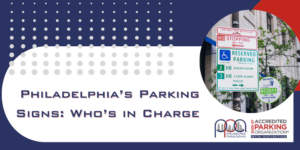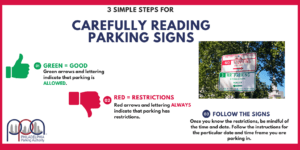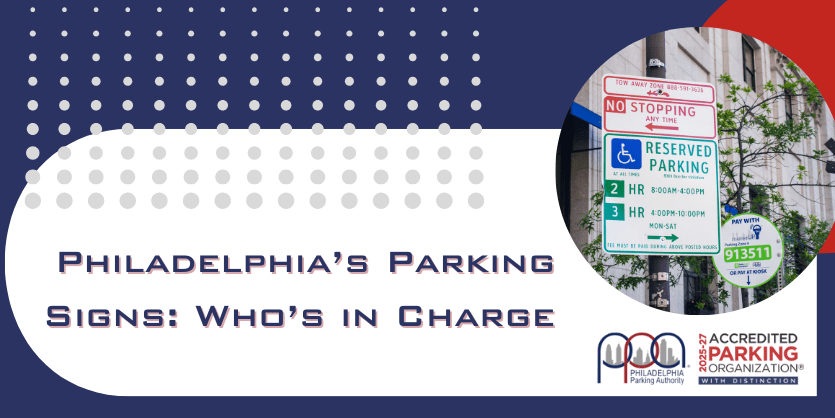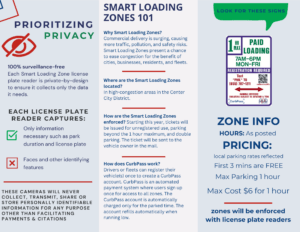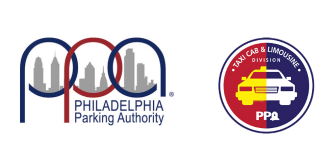(Philadelphia, PA) – The Philadelphia Parking Authority (PPA) and SEPTA have teamed up with the City’s OTIS (Office of Transportation, Infrastructure and Systems) to fight congestion and improve safety on city streets under the City’s Vision Zero agenda.
Working with the City’s Office of Transportation, Infrastructure and Systems (OTIS), the PPA and SEPTA are jointly launching their Automated Bus Camera Enforcement Initiative, aimed at improving safety and alleviating congestion by using camera-mounted computer vision technology to enforce violations for blocking bus lanes, bus stops, and trolley zones.
Forward-facing vision technology equipped camera systems will be mounted on buses and trolleys to enforce parking violations that obstruct public transit and help improve safety, accessibility, and bus and trolley service reliability for SEPTA riders.
Starting April 16, vehicles parked or stopped illegally in designated no stopping lanes, bus stops, or double parked in Center City (on and between Spring Garden and Bainbridge Streets, and between the Delaware and Schuylkill Rivers) or on Market, Chestnut, and Walnut Streets between the Schuylkill River and 63rd Street, will receive warning notices via mail. Citations with fines will be issued starting on May 7. Enforcement of parking violations on trolley tracks and in trolley stop zones will begin later this year.
This program utilizes camera systems from Hayden AI and will be installed on 152 SEPTA buses and 38 trolleys. All bus camera enforcement violations detected by the camera systems will be manually inspected by PPA officers before a ticket is issued.
“There is no better example of intergovernmental cooperation and collaboration than our 3 agencies working together to use smart camera vision technology — to improve public safety and enhance urban mobility and local quality of life by reducing congestion and increasing traffic flow on some of our most congested city arteries,” said PPA Executive Director Rich Lazer.
“We are proud to partner with the Philadelphia Parking Authority on this initiative, which will bolster SEPTA’s efforts to provide customers with safe and reliable service,” said SEPTA Interim General Manager Scott A. Sauer. “Illegally parked vehicles obstructing transit throw buses off schedule, slow down service, and create unnecessary dangers to riders and pedestrians. We are eager to see the improvements this program will deliver.”
“In a city where 42% of Black residents and 50% of impoverished households do not own a car, efficient public transit is paramount to creating a strong transportation network that better provides economic opportunity for all,” said Christopher Puchalsky, Ph.D., Director of Policy and Strategic Initiatives, OTIS. “The camera-aided bus and trolley enforcement initiative will ease commutes for working Philadelphians, while improving the performance of SEPTA’s system. This partnership between the PPA, SEPTA, and OTIS spotlights the Parker administration’s commitment to intergovernmental collaboration and a vision of One Philly, a United City.”
Expanding on the PPA’s on-going ADA Mobility Access Initiative from last spring, Lazer said, “vehicles parked illegally in bus lanes and in bus stop zones threatens the safety and accessibility of all bus riders, but especially riders with disabilities. If a bus cannot pull up to the curb because the bus stop is blocked by an illegally parked vehicle, it is impossible for bus operators to safely deploy wheelchair access ramps to the curb. It also forces transit riders to step into active travel lanes to board and exit the bus, where it is both dangerous and difficult for bus operators to see them.”
Legislation authorizing the PPA and SEPTA to operate the automated bus enforcement camera program was sponsored by Councilman Mark Squilla, and was passed unanimously by City Council on October 26, 2023.
New York City, Washington, DC, Los Angeles and other major US cities currently use camera technology to improve safety and bus performance. In New York City, where bus-mounted automated camera enforcement has been in effect since 2019, bus speeds have increased by 5% on average and collisions have decreased by as much as 34% along bus routes utilizing this technology. Parking violations obstructing bus stops have also decreased by 40%.
“Using our technology to help make cities safer and more accessible for everyone is hugely gratifying for us at Hayden AI,” said Lisa Schule, Executive Chairwoman of Hayden AI. “Everyone benefits when more people can and choose to ride public transportation. We are grateful for the opportunity to help Philadelphia improve road safety, transit accessibility, and on-time transit performance.”
